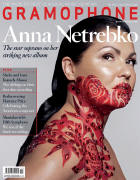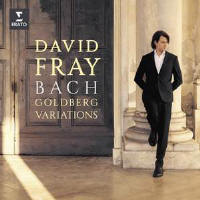Texte paru dans: / Appeared in: |
|
|
Outil de traduction (Très approximatif) |
|
|
Reviewer: Harriet Smith The irony is that, whether in superspeedy 1955 or super-laconic 1981, Gould now sounds positively mainstream compared to some of today’s musicians. David Fray is certainly up there in terms of audacity, putting his stamp on the piece from the very first bar, stretching and melding the Aria to his every whim. As he sets off on the variations, there’s a punchy exuberance to Var 1 that is overly fierce to my ears, while in Var 2, though fine in terms of tempo, there’s an obsession with bringing out hidden elements of Bach’s texture that borders on the eccentric. Fray’s tendency to treat each phrase as a new experience means that Var 5 lacks the exuberance that Beatrice Rana brings to it. Though there are moments of sensitive playing in the gigue of Var 7, the overall effect is overly manicured, again especially when compared to the charm Rana finds here. And to the Fughetta of Var 10 there’s a dogmatic quality that comes in part from a tempo that makes even Gould in 1981 appear speedy. This interventionist trend continues – Var 24 is a good example of hyperreactivity and a determination to leave nothing unchanged on repeats. The so-called ‘Black Pearl’ (Var 25) is extreme in its slowness, though Igor Levit is similarly paced but oh so much more effective, thanks to his long-breathed lines. In fact, if there’s a pianist with a similar approach it’s Lang Lang, and in both cases, I’d argue that their freedom proves their undoing – in Var 28 Fray batters the delicate trills into submission with burly accentuation, an impulse for aggression that also mars Var 29 (at the opposite end of the scale to Levit’s playful ease). For the Quodlibet Fray quietens down – at least initially – before indulging in an out-ofscale crescendo. Gould does something similar in 1981 but with a great deal more subtlety. As the Aria returns, even slower than at the outset, it sounds battle-scarred rather than moving. How it made me long for the simplicity of the young Gould. |
|




